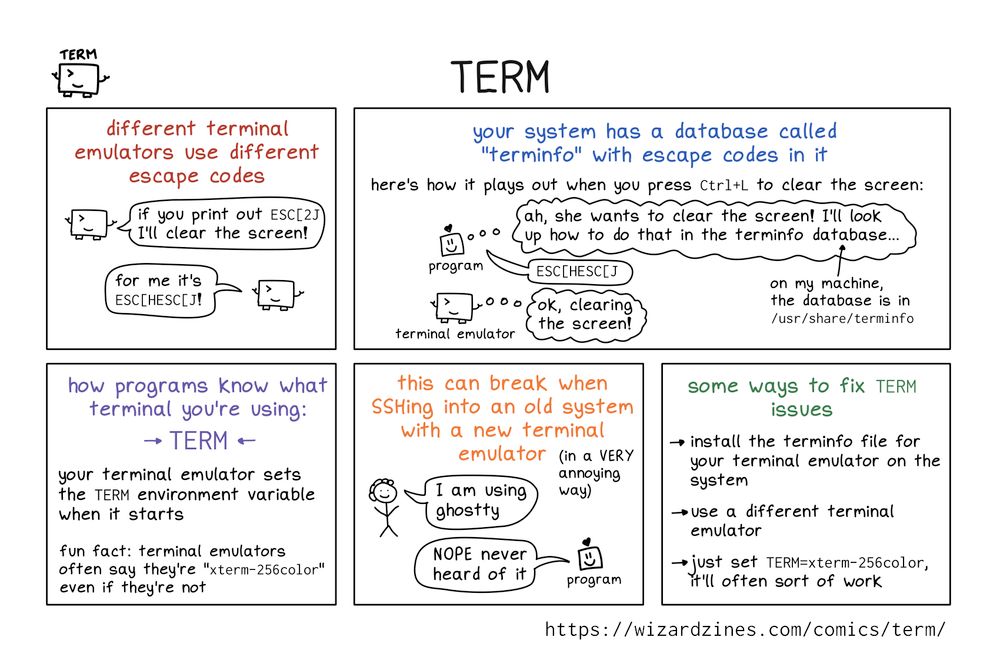
To Bluesky users, follow @ap.brid.gy if you […]
🌉 bridged from ⁂ https://fediscience.org/@ashwinvis, follow @ap.brid.gy to interact
The 184 TFLOP/s are pretty much exactly the same as the previous #jsc […]
[Original post on mastodon.social]

The 184 TFLOP/s are pretty much exactly the same as the previous #jsc […]
[Original post on mastodon.social]
https://youtu.be/l6pEaUttWo8
> Our relaunched MOOC “Fortran for scientific programming” brings this legendary language back to life — from the basics to modern features like OOP and scientific libraries.
From a colleague from #belgium.
https://youtu.be/l6pEaUttWo8
> Our relaunched MOOC “Fortran for scientific programming” brings this legendary language back to life — from the basics to modern features like OOP and scientific libraries.
From a colleague from #belgium.
https://arxiv.org/abs/2511.07885v2
https://github.com/HazyResearch/intelligence-per-watt
#intelligenceperwatt #llm

https://arxiv.org/abs/2511.07885v2
https://github.com/HazyResearch/intelligence-per-watt
#intelligenceperwatt #llm
https://youtube.com/watch?v=iXC5lWDYR9o
#ecmwf #hpcf
https://youtube.com/watch?v=iXC5lWDYR9o
#ecmwf #hpcf

Also kind of makes me want to add a "bibliography" section to my blog posts, what a cool idea
Also kind of makes me want to add a "bibliography" section to my blog posts, what a cool idea
Fun fact! There are something like 500 attributions for images, sounds, and text in the video 🤯 […]
[Original post on wikimedia.social]
Fun fact! There are something like 500 attributions for images, sounds, and text in the video 🤯 […]
[Original post on wikimedia.social]
I am sure that you all have read about PSF declining the $1.5M NSF grant due to avoid restrictive clauses. This latest blogpost from the PSF presents a foggy outlook for the future Python:
> To briefly summarize […]
[Original post on fediscience.org]

I am sure that you all have read about PSF declining the $1.5M NSF grant due to avoid restrictive clauses. This latest blogpost from the PSF presents a foggy outlook for the future Python:
> To briefly summarize […]
[Original post on fediscience.org]
Looking back, it took me at least 3 years, if not 6 years for my #impostorsyndrome to fade away. Tonight I was reading my own #phd thesis (dated 2019) and I was thoroughly impressed by the depth and the quality of the writing.
On the other hand, I clearly […]
Looking back, it took me at least 3 years, if not 6 years for my #impostorsyndrome to fade away. Tonight I was reading my own #phd thesis (dated 2019) and I was thoroughly impressed by the depth and the quality of the writing.
On the other hand, I clearly […]
> Diversity, equity, and inclusion are core to the PSF’s values
https://pyfound.blogspot.com/2025/10/NSF-funding-statement.html
> Diversity, equity, and inclusion are core to the PSF’s values
https://pyfound.blogspot.com/2025/10/NSF-funding-statement.html
#10thingsihateaboutyou #spiderman
#civilwar #bourneidentity #runlolarun
#10thingsihateaboutyou #spiderman
#civilwar #bourneidentity #runlolarun
https://github.com/ROCm/numba-hip
#python #numpy #numba #gpu #amd

https://wizardzines.com/comics/term/
(from "The Secret Rules of the Terminal", out now! https://wizardzines.com/zines/terminal/)

https://wizardzines.com/comics/term/
(from "The Secret Rules of the Terminal", out now! https://wizardzines.com/zines/terminal/)
It's great, but figuring that out earlier could have saved me easily 3 months […]
It's great, but figuring that out earlier could have saved me easily 3 months […]
But—how do you know that this optimization will continue to work? Here's one approach:
https://pythonspeed.com/articles/testing-compiler-optimizations/

But—how do you know that this optimization will continue to work? Here's one approach:
https://pythonspeed.com/articles/testing-compiler-optimizations/
https://wizardzines.com/comics/job-control/
(from The Secret Rules of the Terminal, which is out now!)
![your shell lets you run many programs (“jobs”) in the same terminal tab
programs can either be:
foreground
background
stopped (which is more like “paused”)
& runs a program in the background
for example I like to convert 100 files in parallel like this:
for i in `seq 1 100`
do
convert $i.png $i.jpg &
done
jobs lists backgrounded & stopped jobs
$ jobs
[1] Running python blah.py &
[2] Stopped vim
use the numbers to bring them to the foreground or background (like fg %2), kill them (kill %2), or disown them
when you close a terminal tab all jobs are killed with a SIGHUP signal
you can stop this with disown or by starting the program with nohup: disown %1 (job number goes here) nohup my_program &
a trick to kill programs if Ctrl+C doesn’t work
press Ctrl+Z to stop the program
run kill %1 to kill it (or kill -9 %1 if you’re feeling extra murderous)
a little flowchart
Three boxes, labelled “running in foreground”, “stopped”, and “running in background”
Ctrl+Z goes from “running in foreground” to “stopped” fg goes from “stopped” to “running in foreground” fg goes from “running in background” to “running in foreground” bg goes from “stopped” to “running in background”](https://cdn.bsky.app/img/feed_thumbnail/plain/did:plc:yv3yog6owpooh5eli4sstrb6/bafkreictzmwvs6zopmfhsrxe4jwkak73a6txka2obndklwxtx2dytw4v2a@jpeg)
https://wizardzines.com/comics/job-control/
(from The Secret Rules of the Terminal, which is out now!)
https://enccs.se/success-story/2025/06/handwritten-text-recognition-with-dawsonia/
#eurocc #enccs

https://enccs.se/success-story/2025/06/handwritten-text-recognition-with-dawsonia/
#eurocc #enccs
Here is my contribution, simpler job configuration for GPU jobs:
https://doi.org/10.5281/zenodo.15551797
Not alone […]
Here is my contribution, simpler job configuration for GPU jobs:
https://doi.org/10.5281/zenodo.15551797
Not alone […]
https://www.openscience.nl/en/calls/research-on-open-science
https://www.openscience.nl/en/calls/research-on-open-science
https://cscfi.recruitee.com/o/ai-specialists
#getfedihired #cscfi

https://cscfi.recruitee.com/o/ai-specialists
#getfedihired #cscfi
https://tube.tchncs.de/w/4AJuNWEQ8mZoGUyH88GzKA
#stockholm #Södertälje
https://tube.tchncs.de/w/4AJuNWEQ8mZoGUyH88GzKA
#stockholm #Södertälje
Ashwin here, from Sweden. This account will be my public profile from now on, to chat about what I do in my work. These include:
Training for #rseng and in #hpc, #SciML, #ai / #ml for science within Europe.
You can also find me at
Bluesky: @ashwinvis.fediscience.org.ap […]


